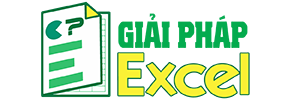I think, it is habit, not hobby, when we have a habit
It is only as a normal operation daily, I think so
Is not the same as
I think, it is habit, not hobby
When we have a habit , it is only as a normal operation daily, I think so
Full stop!
------------
To others: a few extra things to note about the above string of English words
1. you either say 'it is habitual' or 'it is a habit'. 'it is habit' is very poor English. (same with 'not hobby', which should be 'not a hobby')
2. you say 'normal daily operation' or 'daily normal operation' (depending on which adjective you want to place more emphasis on) rather than 'normal operation daily'
3. the word 'as' does not fit in. You don't need it.
4. the expression 'I think so' here is also very poor. Instead, one should say 'I would/should think so'.
Full stop! khi người ta đưa ra một cái/điều gì và tiếp theo đó 'Full stop!' (chấm hết) là người ta muốn nói "chấm dứt, không chấp nhận tranh luận gì nữa" (không nói nữa, tôi tin rằng vậy là đúng rồi)






